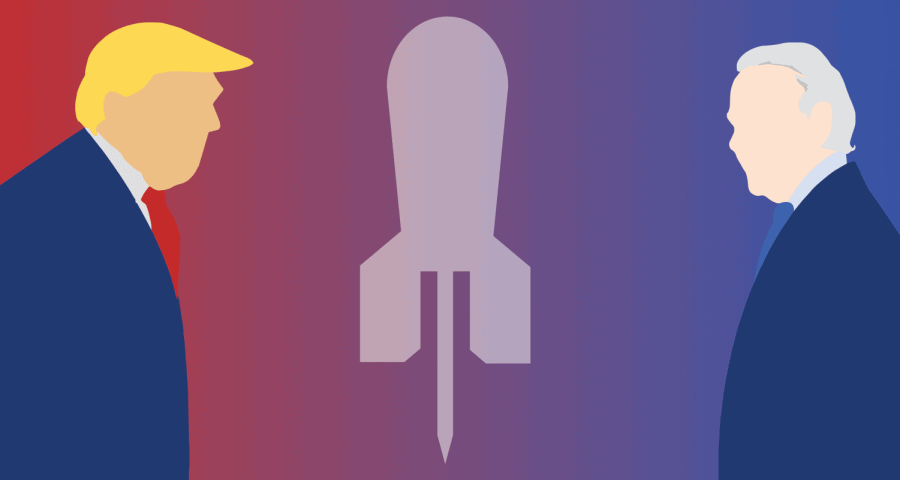Opinion | Presidential Nominees’ Nuclear Policies Fall Short
September 30, 2020
Sept. 26 was the International Day for the Total Elimination of Nuclear Weapons. Each year, the event is commemorated and promoted by the United Nations through a public awareness campaign and education about the effects of nuclear weapons. The establishment of the international holiday represents just one of the many global efforts to reduce and eliminate weapons of mass destruction.
Currently, the United States is subject to a cap on its nuclear arsenal by the Strategic Arms Reduction Treaty, also called the New START Treaty, which the U.S. and Russia signed in 2010. This treaty is set to expire in February 2021—just two weeks after the presidential inauguration—if an extension is not made before then. If the treaty is allowed to expire, it will be the first time since 1972 that the U.S. and Russia would not be subject to a mutual nuclear arms control agreement.
President Donald Trump’s administration insists that an extension of the New START Treaty, or a replacement, must include China. China is one of nine nations worldwide that possesses nuclear weapons, but its arsenal is far smaller than those of the United States and Russia. The Arms Control Association estimates that China has 290 nuclear warheads compared to almost 6,200 (over 2,800 of which have been retired) under U.S. control and 6,490 under Russian control.
Marshall Billinglea, the presidential special envoy for arms control, stated that he and his Russian counterpart agreed to discuss paths to new negotiations. However, the Trump administration has not committed to renewing the New START Treaty or provided a timeline for when negotiations for a new agreement would conclude.
Democratic nominee Joe Biden promises to pursue a New START Treaty extension if elected. However, Biden supports nuclear deterrence policy and the use of nuclear weapons in retaliation if necessary. Biden’s policy proposal goes farther than Trump’s but falls short of legitimate disarmament measures.
Trump used his time in office to upgrade the U.S. nuclear arsenal, so it can be assumed that a Trump victory in November would allow this trend to continue. Biden wishes to reduce U.S. reliance on nuclear deterrence but has failed to explain what such a reduction would look like. Neither presidential candidate has a plan for disarmament further than a vague commitment to “new negotiations” in the future.
Both Trump and Biden lack detailed plans for nuclear disarmament. This lack of detail suggests that U.S. nuclear dependence will not be significantly reduced in the near future. In light of this, the International Day for the Total Elimination of Nuclear Weapons serves as a reminder that the United States will not be contributing to the day’s goal anytime soon.








